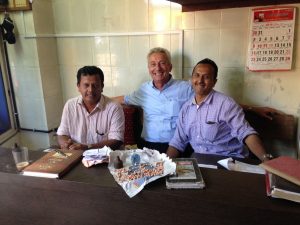Filippo Osella is Professor of Anthropology And South Asian Studies at University of Sussex, UK. He has conducted extensive research in Kerala (South India), as well as in Sri Lanka, and in Gulf Cooperation Council countries such as UAE, Oman and Qatar. Over the years, he has researched issues concerning social mobility in the context of socio-religious reform movements and migration to West Asia (see Osella & Osella Social Mobility in Kerala: Modernity and Identity in Conflict, Pluto Press 2000, and Osella & Gardner Migration, Modernity and Social Transformation in South Asia, Sage 2004), and the (re)production of masculine subjectivities (see Osella & Osella Men and Masculinities in South India, Anthem Press 2006, and Chopra, Osella & Osella Masculinities in South Asia, Kali for Women/ Women Unlimited 2004). In his more recent research, Prof. Osella has explored the emergence of various strands of Islamic reformism in Kerala, and relationships between religious practice, politics and economic action (see Osella & Soares Islam, politics and anthropology, Blackwell & Wiley 2010; Osella & Osella Islamic reforms in South Asia, Cambridge University Press 2012; Osella & Rudnyckyj Religion and the Morality of the Market, Cambridge University Press 2017). As a development of this strand of research, he has considered transformations of Islamic charity in both South India and Sri Lanka, leading to the publication of a special issue of Modern Asian Studies on this subject (Osella & Ramaswamy Charity and Philanthropy in South Asia, 2018). In his current research he is considering the configuration of trading networks and circulation of cheap commodities between China, India and West Asia, with fieldwork in Yiwu (China), Ernakulam (India) and Dubai (UAE). At the same time, he has recently begun fieldwork in coastal Kerala on artisanal fishers’ attitudes towards risk across the whole range of their activities, and on the role of the Catholic church in supporting fishers’ political and social mobilization.
